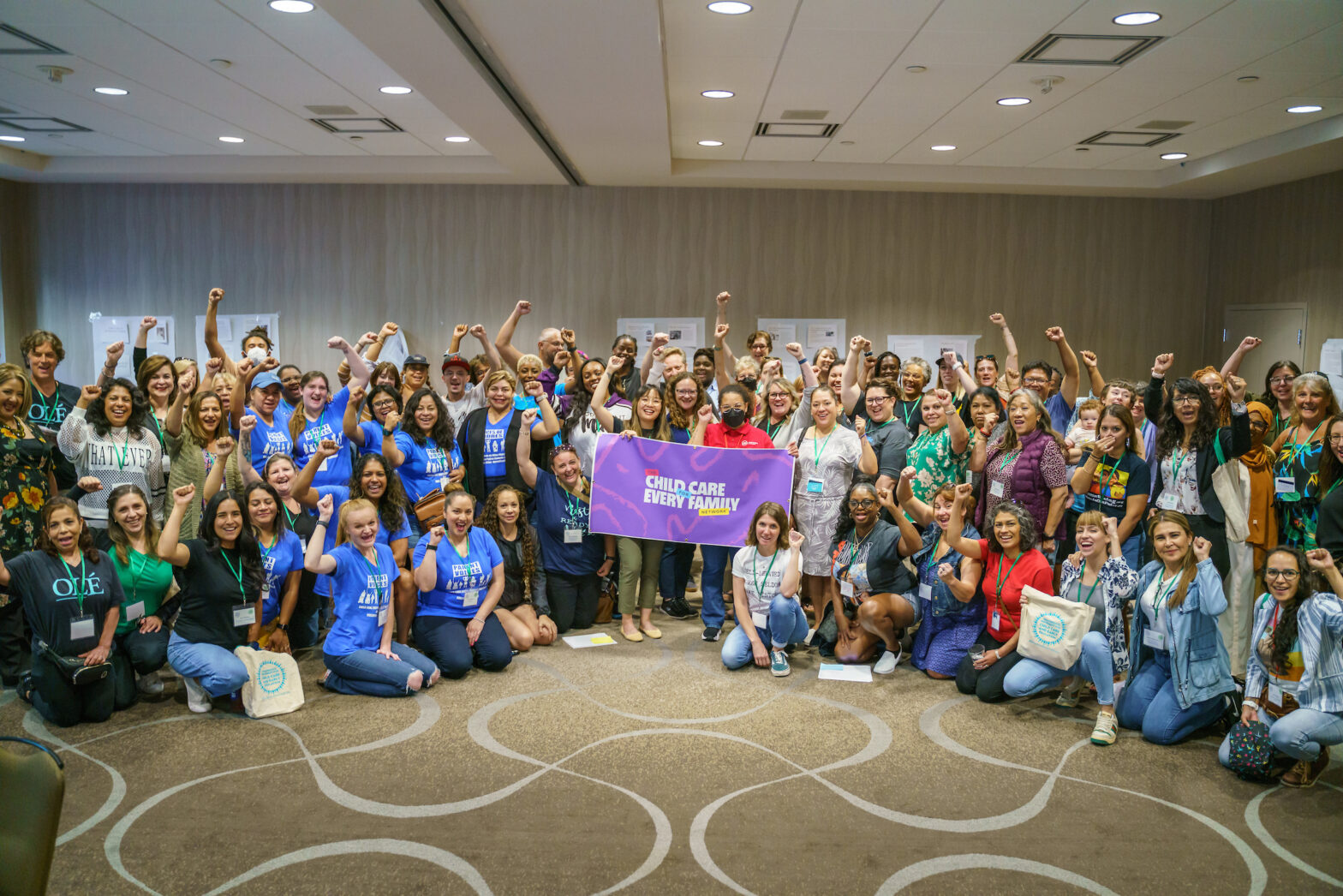Every family should have child care that meets their unique needs and every child care provider should receive good wages and benefits.

But in the United States, child care is seen as a personal problem that families must solve for. This has been especially true for women & families of color. The problem is that child care doesn’t work as a business—parents cannot afford the true cost of care and providers can’t make enough to stay in business on what families can pay.
The Child Care for Every Family Network is the largest united group of state and national organizations, child care providers, impacted families, and organizers working together to transform child care. Our network currently includes 1,500+ groups and individuals and is expanding every day as we work to build the power necessary to win.
We are building power to create a transformed national system with universal access to high-quality child care and a diverse, well-paid, well-supported workforce.
We seek a transformed national system that results in universal access to child care with a diverse, well-paid, well-supported workforce.
Our work is guided by five fundamental values:
We believe child care must be fundamentally valued and seen as a part of the full spectrum of care each of us deserves from prenatal to death. Child care is a shared public good requiring a robust government response. Therefore, governments at every level must prioritize and adequately invest public dollars in an equitable child care system that is accountable to the people. Child care for us includes early care, learning, education, and pre-K as well as out-of-school time.
We need a child care system designed for all types of providers (in a center, school, community or home setting) that give options to meet the needs for all families (defining families broadly and inclusively, including LGBTQ families) and that supports the well-being of children (recognizing their inherent dignity, equality, and inalienable rights). We reject a scarcity mindset that pits parents, providers, and children against each other. When parents and providers are well-supported, children thrive.
Our work is guided by a shared acknowledgment that the current system of caregiving in this country is rooted in systemic racism and upholds practices that continue to harm Black, Indigenous, and People of Color (BIPOC) communities. Today’s system remains stigmatizing, insufficient, and narrow, and pays unsustainably low wages to providers. Therefore, any steps we take together must be in service of realizing our vision, rather than upholding a fundamentally flawed system. We will not get stuck in only what seems “possible” today.
The burdens of our flawed child care system are disproportionately shouldered by women, particularly women of color (specifically Black, Latinx, Indigenous, and immigrant women), who are paid a lower income and whose labor, both in our families and in our workplaces, has been and continues to be undervalued. We trust women and transgender and gender non-conforming (TGNC) people to make the best choices for themselves and their lives and see access to child care as an essential element of reproductive justice. Therefore, to find solutions we must understand the child care system through an intersectional analysis including race, gender, and class.
We believe in authentically centering the voices and experiences of Black, Indigenous, and People of Color (BIPOC) women and communities, immigrants, children with disabilities, and those most directly impacted by the failings and barriers in the current child care system—both families and providers. In our work, we seek to support engagement through language access and financial support, whenever possible. Their knowledge and lived experiences will shape fairer and more effective policies and practices.


Child care is the work that makes all other work possible.
Too often, policy solutions come top-down and don’t involve the folks on the ground who are experiencing our broken systems. We believe that folks most impacted by our broken child care system should be the ones centered as we rebuild it. That looks like Black and brown folks, immigrants, people living with a disability or who have a disabled child, and people who make low- to no wages helping design policy solutions. Only then will our child care system work for all.
Organizers across the country have been building power at the state level with impacted families and child care providers for decades. They are ready to engage with Congress to build a transformed national child care system.
Together, we can create a system that works for kids, families, child care providers, and our economy.
